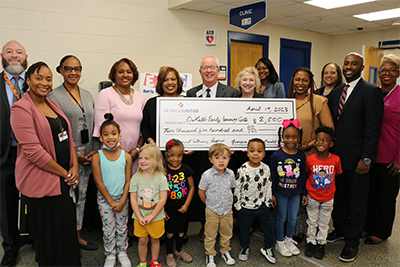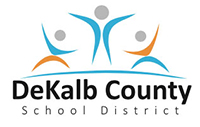Students Learn Fundamentals of Saving & Spending Thanks to GUCU Donation
 It’s never too early to build a solid understanding of financial literacy. That’s the approach that some of DeKalb County School District’s (DCSD) youngest students are learning at the Early Learning Center, thanks to a $2,500 donation from Georgia United Credit Union (GUCU).
It’s never too early to build a solid understanding of financial literacy. That’s the approach that some of DeKalb County School District’s (DCSD) youngest students are learning at the Early Learning Center, thanks to a $2,500 donation from Georgia United Credit Union (GUCU).
The funding is being used to support the school’s first Financial Literacy Week (May 15-19), which aims to discuss and broaden students’ ideas of money matters through discussions and hands-on learning. All events throughout the week will support the “Give, Save, and Spend” focus of GUCU.
“This gives them an early introduction into financials that they can build upon,” said Early Learning Center Director Dr. Zack Phillips. “This partnership with Georgia United Credit Union will be profound for many of these students as they continue to add tools to their instructional toolkit and transition from the Early Learning Center to the K-12 pathway.”
The students will follow two lesson plans, one at each grade level, to teach them about money, allowances, checking and savings accounts, and more. When students complete the two-year program, they will receive a certificate of completion.
“This is powerful because we’re starting with our young ones. I didn’t start learning about the importance of money until I was much older than these students,” said DCSD Interim Superintendent Dr. Vasanne Tinsley. “So, if they can start learning about the significance of money and how they should save, and how that literacy will help them as they grow and develop, this generation will be much better for it.
“I appreciate Georgia United Credit Union pouring into our students. These students can share this with their families, which will help the community.”
Steve Overcash, GUCU Business Development Officer, said the credit union is thrilled to help sponsor the financial literacy program.
“I have a personal enthusiasm for teaching financial literacy, and GUCU is committed to sharing solid financial strategies to children and adults at all ages and in all stages of life,” he said. “You can never start too early with that, and we are committed to doing our part in supporting these students and our community.”


